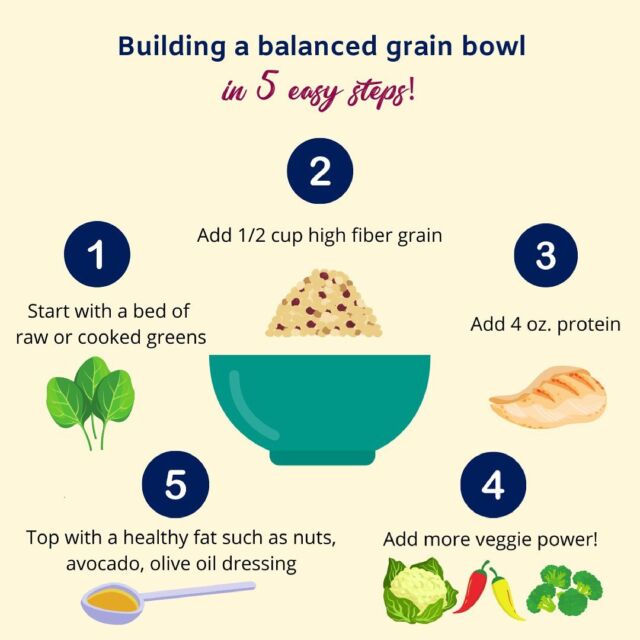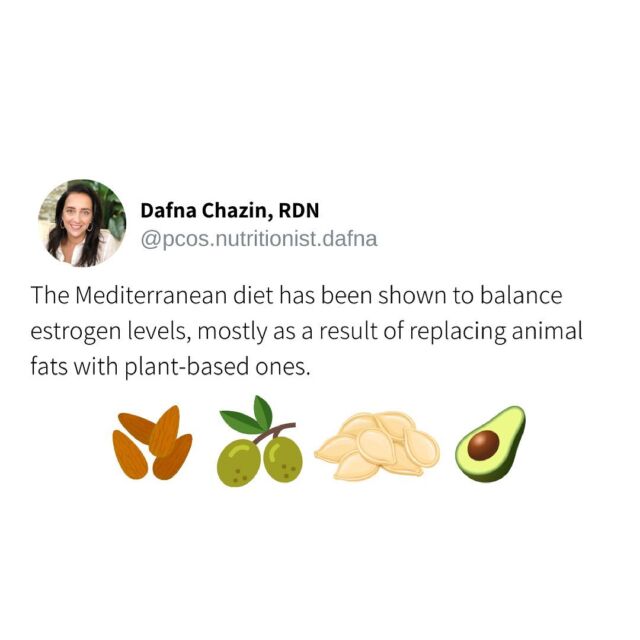Do Calories Matter for PCOS?
There’s a secret about diets you’ve likely never been told. They all do the SAME thing. Yup, whether it’s Weight Watchers, keto, or South Beach – all diets work in a similar way by reducing your calorie intake. Yes, points are simply calories, there’s nothing magical about them!
The focus on calories in our diet-obsessed culture is based on the idea that creating a calorie deficit will lead to weight loss across all body types. While there’s some scientific basis for this, there are several issues with calories when it comes to PCOS making them an ineffective (and often harmful) way to go.
Before we dive into the reasons calories don’t really work for PCOS, let me ask you: How many times have you tried to count calories? How did it go? Were you able to continue doing so for a while? And did it provide the results you desired?
If you’ve had a rough experience in the past with calories, you’re not alone. Most women with PCOS find that calorie-based approaches (AKA diets) don’t provide relief from PCOS symptoms or produce sustainable weight loss for them.
The reason for this is that PCOS weight gain is usually the result of hormonal imbalances (specifically insulin resistance and inflammation), not excessive calorie intake. When hormones such as insulin and cortisol are high, it’s nearly impossible for the body to enter fat-burning mode and shed pounds. Instead, the body holds on to every calorie we eat and stores it as energy (fat) for later use. Whether we eat 2000 calories or 500 calories is irrelevant in this scenario.
Now that we have a general idea of why calories aren’t a great parameter to focus on with PCOS, let’s break this down a bit more with the 3 main reasons calories don’t really matter
3 Important Reasons Counting Calories Doesn’t Work for PCOS
1. Restricting Calories Doesn’t Address Insulin Resistance
The most important principle of healthy eating for PCOS is blood sugar control. Keeping blood sugar levels stable throughout the day is the foundation of balancing hormones and reducing insulin resistance – a major driver of PCOS symptoms (including weight gain!).
Counting calories does not promote blood sugar balance in many cases. The reason for this is that it is based on restriction of foods that are higher in calories and energy dense (many of which are super healthy!).
When the priority is to consume as few calories as possible, it is common to eliminate hormone balancing foods. Examples include carbohydrates like potatoes, fats like avocados and nuts as well as certain fruits and starchy foods. ALL of these are essential for reducing insulin levels as they provide fiber, slow down blood sugar spikes after meals and increase fullness.
Can you see how focusing on numbers can blindside you from the real cause of PCOS weight gain (insulin resistance!)?
![]()
![]()
2. Calories Keep The Focus on Quantity, Not Quality
Similarly, many women don’t realize that eating a certain amount of calories is not a guarantee for good nutrition! If you’ve ever eaten your entire day’s worth of calories or points in M&Ms, you know what I’m talking about!
There are many ways to stay “compliant” with your calorie goals but totally miss the mark when it comes to nutrition and getting the essential nutrients, vitamins and minerals your body needs.
In my programs, we shift the focus from numbers, grams, and calories to QUALITY. Focusing on having the most nutritious foods on your plate (despite their calorie counts!) will naturally create a balance across your protein, carbs and fats. Healthy eating is about striving for balance across your meals and feeling satisfied and well-nourished. It’s not about becoming a food accountant!
3. Calorie Counting Can Trigger Disordered Eating
Women with PCOS are at an increased risk for disordered eating. I believe that calorie counting can be a major trigger for this and create an obsessive relationship with food. Here are some examples of thoughts or beliefs that represent this toxic scenario:
- “If I have this now, then I can’t have that later, I don’t have enough calories left”
- “I had a big lunch, which means I have to skip dinner”
- “I have to find out how many calories are in this meal before I start eating”
This is no way to live! Eating should be pleasurable and not stressful! Especially since PCOS is a lifelong condition that requires a sustainable approach. Counting calories is highly unsustainable and can cause anxiety and stress around meals. It’s also time consuming and very tedious.
In addition to this, calorie restriction can have huge, negative effects on your intuition and how you listen to your body. What I mean by this is that your calorie needs and appetite may change throughout the week and month. When we’re “locked in” to a certain calorie level, we are less likely to listen to our natural hunger cues and honor our innate hunger signals.
On the flip side of this, there may be days where less food feels good. Perhaps you are not feeling very hungry on a hot summer day. Should you forgo your intuition and force yourself to eat for the sake of your “perfect calorie day”? Of course not, this is not what your body is signaling you to do!
Listening to your body and eating what and how much is right for you is a hugely important skill to master in your PCOS healing journey. This intuition helps us figure out if we are actually hungry, or not. If we are actually full, or not… and so on and so forth. Leaning into your intuition and really listening to your body is essential for having a healthy and strong relationship with food.
What to do next…
Letting go of calorie counting may take time, especially if you’ve done it for many years. However, I hope that you now realize how irrelevant calories can be for PCOS. Focusing your attention on reducing insulin levels, stabilizing blood sugar and enhancing the quality of your meals can dramatically reduce your symptoms including weight gain, cravings and fatigue.
In addition, shifting the focus away from numbers can provide relief and reduce food anxiety. This will not only make your journey more enjoyable, but it will also reduce the negative impact food stress can have on your hormones and body. Our physical and mental health are strongly intertwined and the way we eat can certainly “feed” into both!
If you’re ready to mend your relationship with food, balance your hormones naturally and let go of diets, be sure to be on the lookout for Pause the Pounds, my 8-week coaching program for women with PCOS who want to manage weight successfully. Doors open soon!
P.S.- If you’d rather listen than read, I talked about calories on my podcast recently – check it out!
 Unsure if you have insulin resistance (IR)? W
Unsure if you have insulin resistance (IR)? W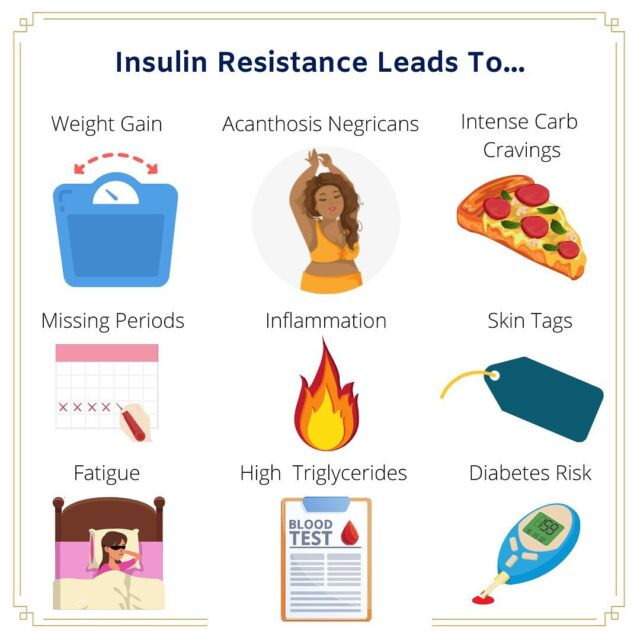
 Just sayin’ I hope these people
Just sayin’ I hope these people
 Are you self sabotaging by waiting On motivati
Are you self sabotaging by waiting On motivati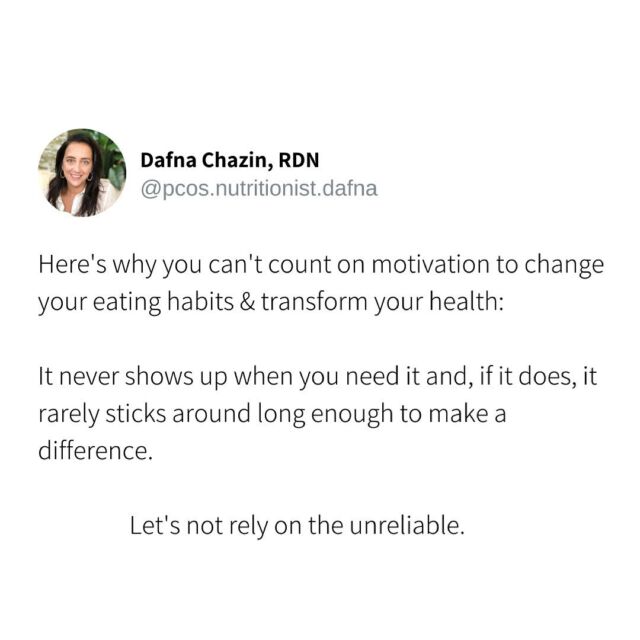
 Did you know that certain toxins in our env
Did you know that certain toxins in our env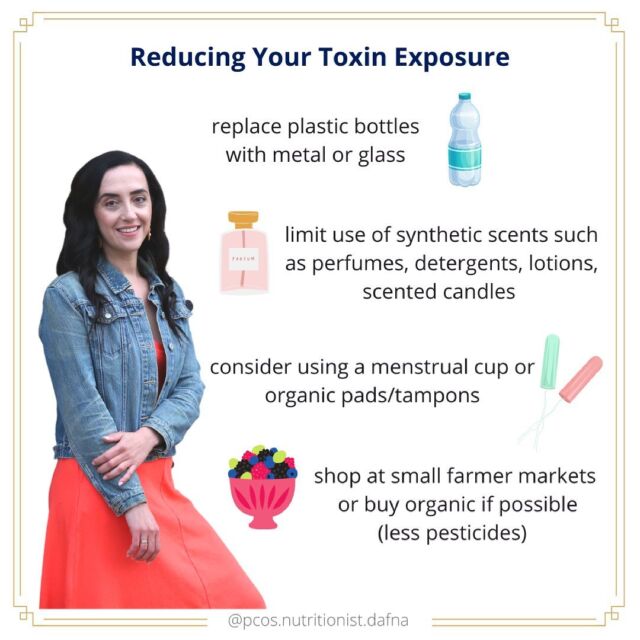
 Hands up for quick, balanced & delicious
Hands up for quick, balanced & delicious 